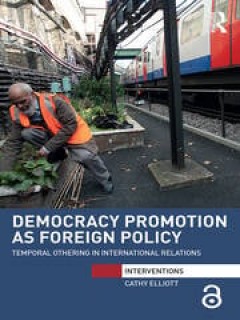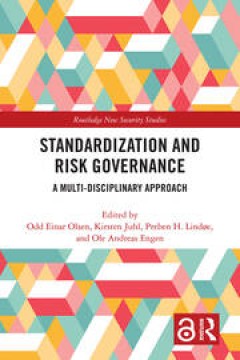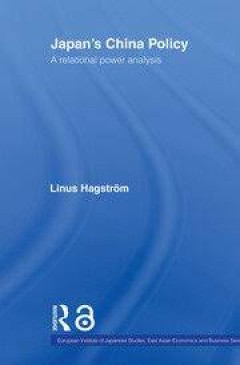Filter by

Human and Minority Rights Protection by Multiple Diversity Governance
Human and Minority Rights Protection by Multiple Diversity Governance provides a comprehensive overview and critical analysis of minority protection through national constitutional law and international law in Europe. Using a critical theoretical and methodological approach, this textbook: provides a historical analysis of state formation and nation building in Europe with context of religio…
- Edition
- -
- ISBN/ISSN
- -
- Collation
- -
- Series Title
- -
- Call Number
- -

The Political Attitudes of Divided European Citizens : Public Opinion and Soc…
ABSTRACT The Open Access version of this book, available at https://www.taylorfrancis.com/books/e/9781003046653, has been made available under a Creative Commons Attribution-Non Commercial-No Derivatives 4.0 license. This book unveils the significant impact of the European integration process on the political thinking of European citizens. With close attention to the interrelation between s…
- Edition
- -
- ISBN/ISSN
- 9781003046653
- Collation
- -
- Series Title
- -
- Call Number
- 320

Climate Change and Natural Disasters
ABSTRACT The Open Access version of this book, available at https://www.taylorfrancis.com/books/9781351527927, has been made available under a Creative Commons Attribution-Non Commercial-No Derivatives 4.0 license The start of the new millennium will be remembered for deadly climate-related disasters - the great floods in Thailand in 2011, Super Storm Sandy in the United States in 2012, and…
- Edition
- -
- ISBN/ISSN
- 9781315081045
- Collation
- -
- Series Title
- -
- Call Number
- -

Democracy Promotion as Foreign Policy
ABSTRACT This book looks at democracy promotion as a form of foreign policy. Elliott asks why democracy was seen to be the answer to the 7/7 bombings in London, and why it should be promoted not in Britain, but in Pakistan. The book provides a detailed answer to these questions, examining the logic and the modes of thinking that made such a response possible through analysis of the stories we …
- Edition
- -
- ISBN/ISSN
- 9781315618050
- Collation
- -
- Series Title
- -
- Call Number
- -

Standardization and Risk Governance : A Multi-Disciplinary Approach
This multi-disciplinary book conceptualizes, maps, and analyses ongoing standardization processes of risk issues across various sectors, processes, and practices. Standards are not only technical specifications and guidelines to support efficient risk governance, but also contain social, political, economic, and organizational aspects. This book presents a variety of standardization processe…
- Edition
- -
- ISBN/ISSN
- 9780429290817
- Collation
- -
- Series Title
- -
- Call Number
- 320

Lifestyle Politics and Radical Activism
This book is available as open access through the Bloomsbury Open Access programme and is available on www.bloomsburycollections.com. Attempts by people to enact their political beliefs in their daily lives have become commonplace in contemporary US culture, in spheres ranging from shopping habits to romantic attachments. This groundbreaking book examines how collective social movements have cu…
- Edition
- -
- ISBN/ISSN
- 9781441157430
- Collation
- -
- Series Title
- -
- Call Number
- -

Africa in International Politics External Involvement on the Continent
Locating Africa on the global stage, this book examines and compares external involvement in the continent, exploring the foreign policies of major states and international organizations towards Africa. The contributors work within a political economy framework in order to study how these powers have attempted to stimulate democracy, peace and prosperity in the context of neo-liberal hegemony a…
- Edition
- -
- ISBN/ISSN
- 9780203493175
- Collation
- -
- Series Title
- -
- Call Number
- -

Good Governance in the Era of Global Neoliberalism Conflict and Depolitizati…
This new collection critically examines the new global policy of 'good governance'. This catchphrase of aid policy and development thinking has been the subject of too little analysis to date. This book redresses the balance. It places the prefix 'good', and exactly what that means, under the microscope and examines the impact of neoliberal governance in a wide range of countries and territorie…
- Edition
- -
- ISBN/ISSN
- 9780203478691
- Collation
- -
- Series Title
- -
- Call Number
- -

Africa and the North Between Globalization and Marginalization
An important new discussion of Africa's place in the international system. This volume discusses Africa's place in the international system, examining the way in which the Westphalian system, in light of the impact of globalization and transnational networks, continues to play a major role in the structuring of Africa's international relations. The book provides a solid empirical analysis…
- Edition
- -
- ISBN/ISSN
- 9780203414484
- Collation
- -
- Series Title
- -
- Call Number
- -

Japan's China Policy A Relational Power Analysis
Japan's China Policy understands Japan's foreign policy in terms of power - one of the most central concepts of political analysis. It contributes a fresh understanding to the subject by developing relational power as an analytical framework and by applying it to significant issues in Japan's China policy: the negotiations for a bilateral investment protection treaty and the disputed Pinnacle (…
- Edition
- -
- ISBN/ISSN
- 9780203023792
- Collation
- -
- Series Title
- -
- Call Number
- -
 Computer Science, Information & General Works
Computer Science, Information & General Works  Philosophy & Psychology
Philosophy & Psychology  Religion
Religion  Social Sciences
Social Sciences  Language
Language  Pure Science
Pure Science  Applied Sciences
Applied Sciences  Art & Recreation
Art & Recreation  Literature
Literature  History & Geography
History & Geography